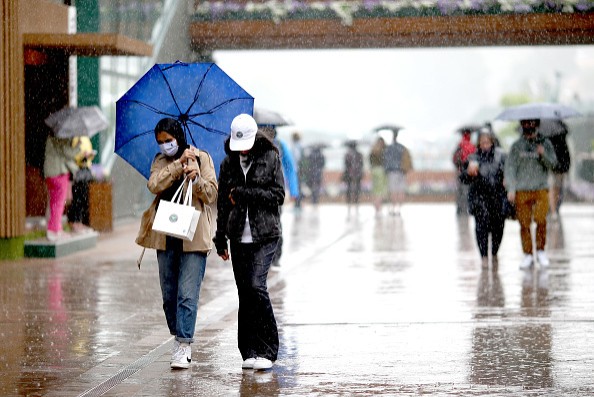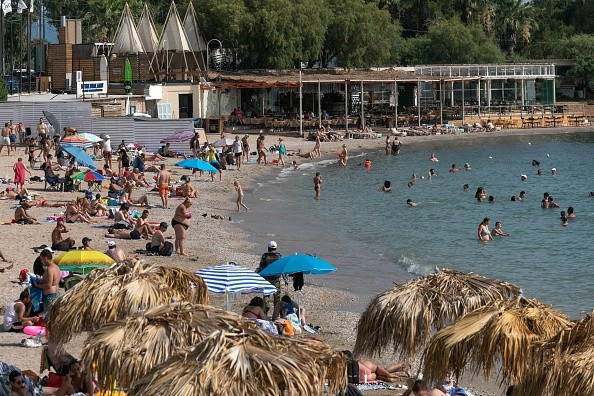Fourth of July's weather will either be extremely wet, extremely hot, or extremely dry, depending on the area you are based, as a lot of individuals look forward to going out and celebrating Independence Day for the first time in two years.

The Forecast
One location that has been constantly bombarded with rain during the last few months is the South. Not too long ago, Tropical Storm Claudette brought almost a foot of rain to some regions in Mississippi and up to 8 inches in some parts of Louisiana.
Houston also experienced inundating rain with close to 14 inches between May 11 and June 3, making it the second wettest period that has ever been recorded for the city. Now, looking onwards to the Fourth weekend of July, the forecast seems like it will be wet in the South once again.
The lead forecaster at the National Weather Service (NWS) in Houston, Brian Kyle said there has been sort of a break so that the ground could dry out but we are entering a wetter pattern again. Brian Kyle said more intense gulf moisture will be moving into the region, together with daytime heating will make good chances of showers and storms available every day.
Also Read : Despite Temperature Spikes, American Northeast May Experience Some Cooling Due to Stormy Weather
Wet Holiday Weekend
And this weekend, possibility of rain will stretch across the South and up the Eastern Seaboard. For millions, this will be a wet holiday weekend. As people went to the beaches for the long weekend, more showers and storms signify more risk.
The lead forecaster said It's a big time with the beaches in the area and rip currents are usually an unease going into the holiday week. The isolated storms off the Gulf will cause periods of powerful southerly winds which could make rip currents. And could contain lightning and periods of very intense rainfall also.
The lead forecaster said in the Houston region the greatest concern is the rainfall rates, this concern is even greater than the amount.

Flash Flooding in Some Portion of the State
The metro regions with so much concrete can at times get rainfall rates of 3-inches plus an hour, and the ground just won't be able to absorb it that quickly. And that's what usually leads the flash flooding in this portion of the state.
The West can't seem to get over a few drops while the South copes with drenching rain. With about 91% of the west in some level of drought, the circumstances are terrible.
Chelsea Peters, NWS Las Vegas Meteorologist said: "We speak to emergency managers and people in the fire department and they reveal that 4th of July is their most occupied time of year, due to the likelihood of getting so many calls.
Peters said nearly all the local fireworks are contained within the city, and don't appear to spark as many wildfires.
For more news, updates about weather forecast and similar topics don't forget to follow Nature World News!
© 2025 NatureWorldNews.com All rights reserved. Do not reproduce without permission.





